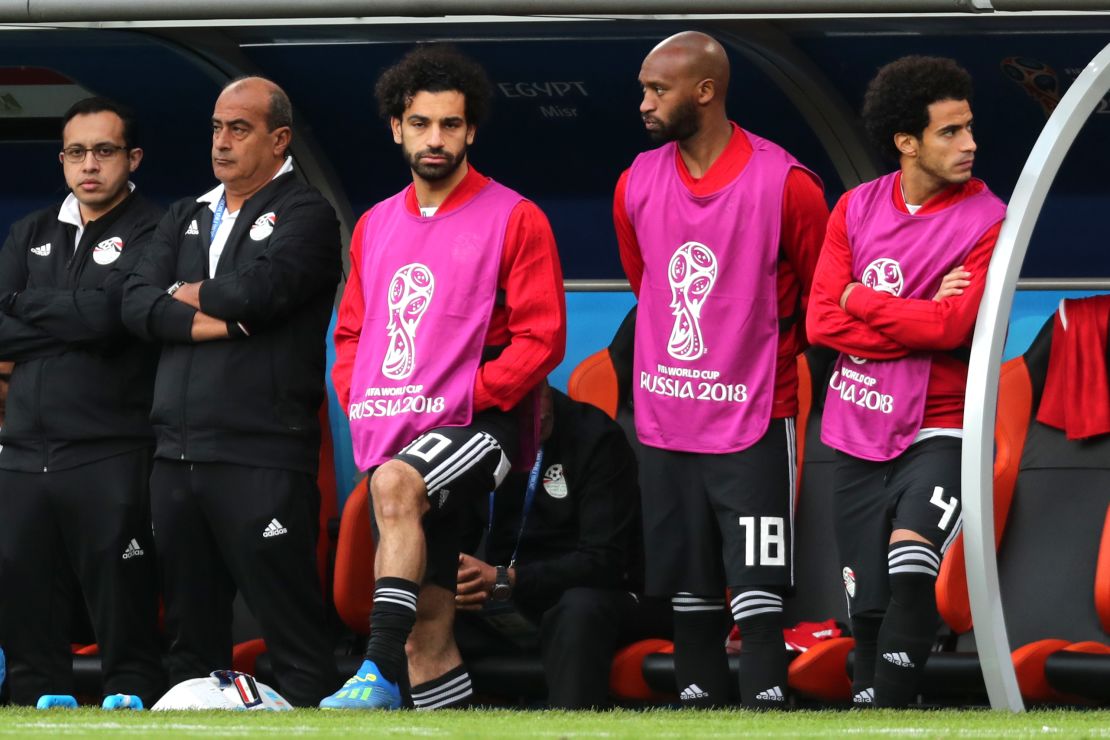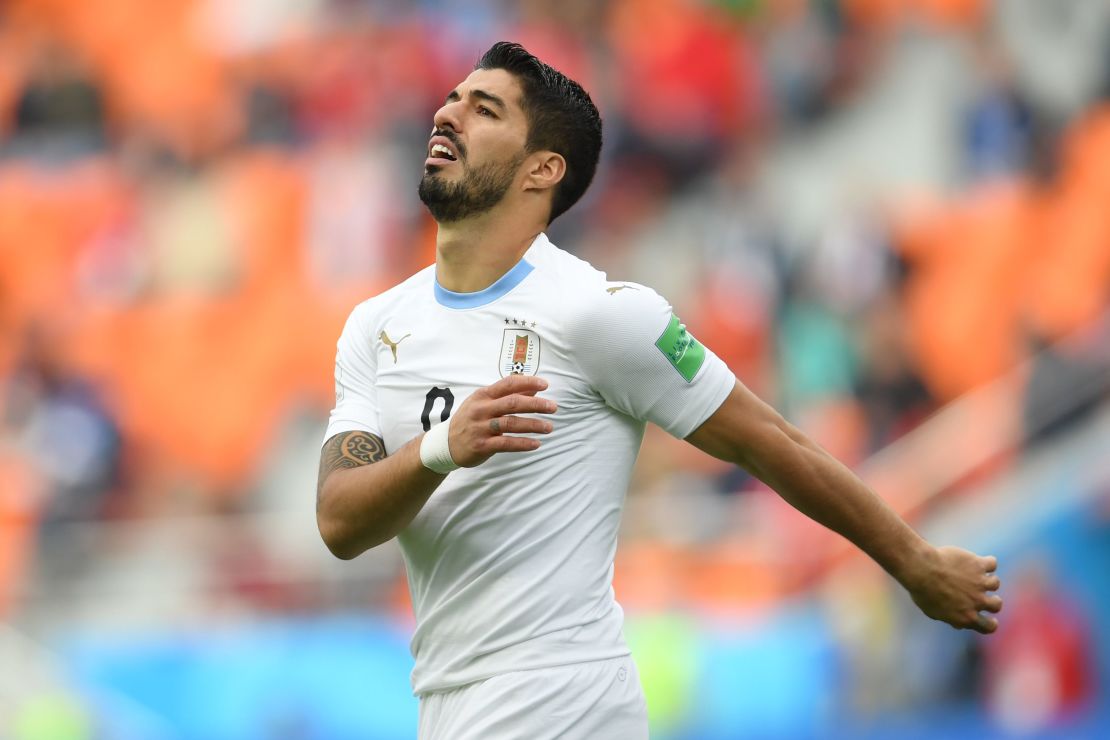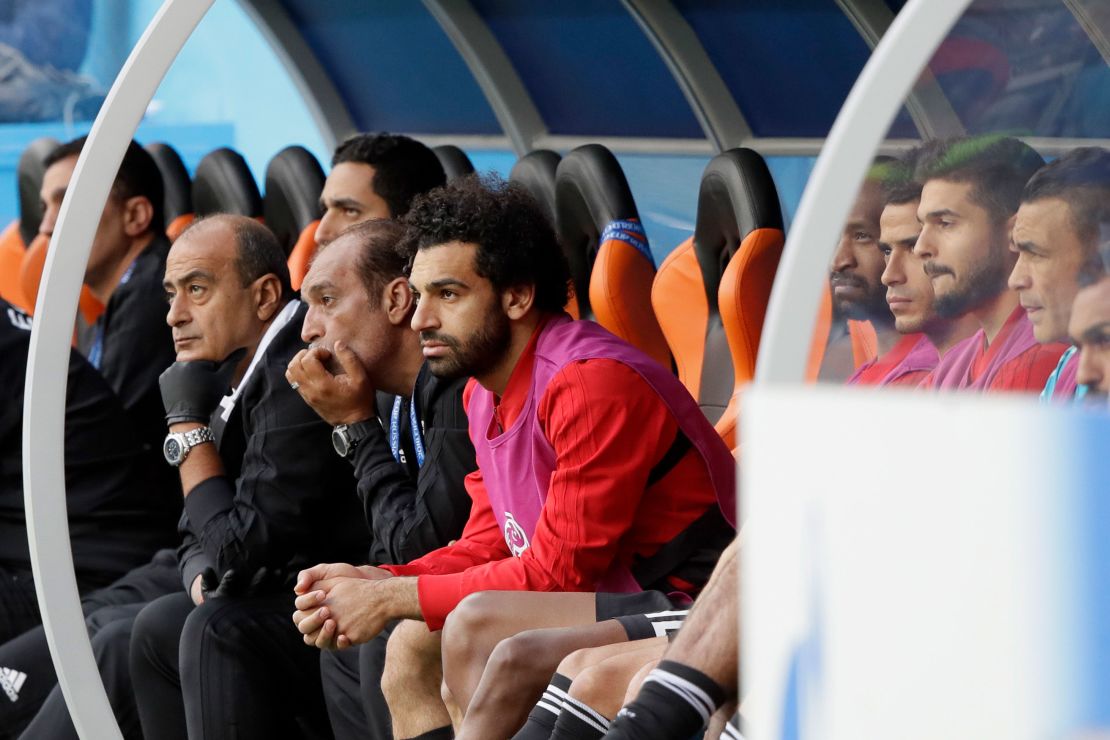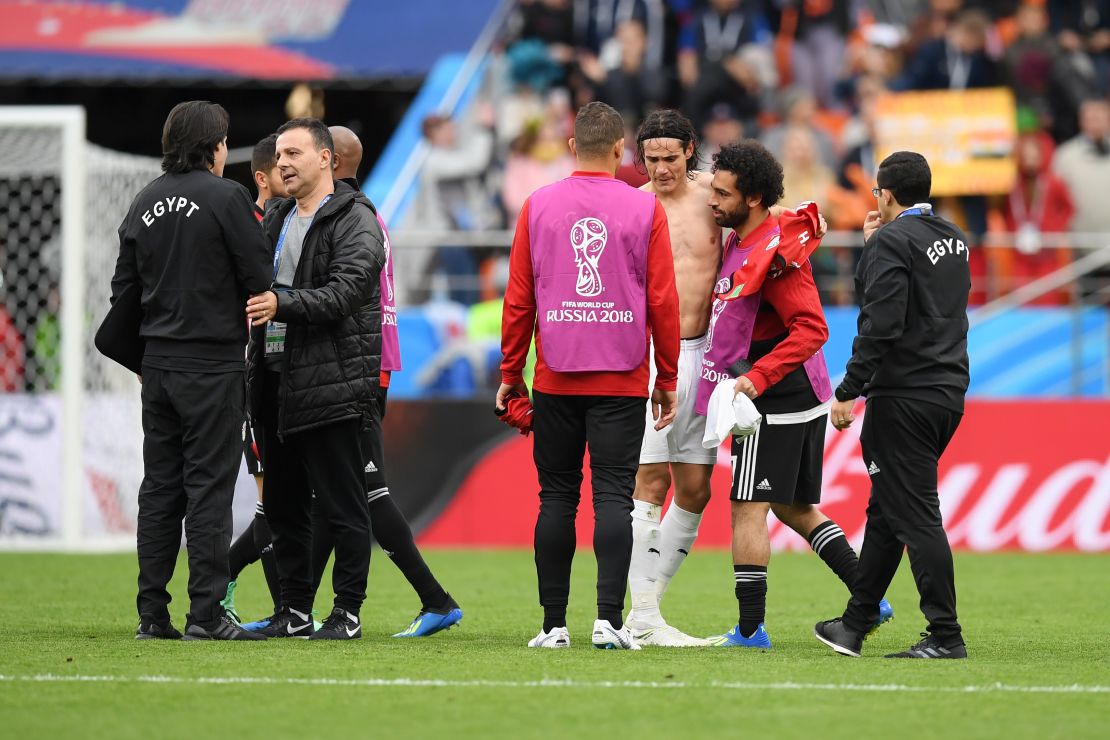Story highlights
Egypt 0-1 Uruguay
Giménez scores 90th-minute winner
Salah doesn't feature for Egypt
The World Cup is barely two days old and football’s governing body FIFA is already having to field questions about poor stadium attendances at the tournament.
As Egypt and Uruguay kicked off Friday’s action, the eye was immediately drawn to the hundreds of empty, orange seats spread around the Ekaterinburg Arena.
FIFA say that the match had been close to a sellout but had no explanation as to why fans who bought those tickets hadn’t turned up.
“We can confirm that 32,278 tickets have been allocated for the match between Egypt and Uruguay in Ekaterinburg,” a FIFA spokesperson told CNN.
“The FIFA World Cup stadium capacity is 33,061. The fact that the current attendance doesn’t reflect the amount of allocated tickets can be due to different factors, which FIFA is currently investigating.”
In a statement released last week, FIFA said: “With just seven days to go until the opening match of the 2018 FIFA World Cup in Russia, FIFA can confirm that 2,403,116 tickets have been allocated to football fans all around the world since sales started in September 2017.”
The Ekaterinburg Arena is one of the more striking stadiums at Russia 2018 – two temporary stands had to be erected at either end to meet the World Cup’s minimum capacity requirement.
The additional seats, constructed well outside the original stadium structure, will be taken down once the tournament ends.
Those fans that did make the effort to attend the World Cup’s second match weren’t treated to a classic, though at least Uruguay’s supporters left with a smile on their faces after the South American team secured a win thanks to José María Giménez’s 90th-minute header.
READ: Robbie Williams and Ronaldo kick off World Cup
READ: Russia open World Cup 2018 with thumping win over Saudi Arabia
It was Uruguay’s first win in their opening World Cup match since 1970.
After Giménez scored, the cameras panned to the helpless Mo Salah, who was on the substitutes’ bench for Egypt, unable to make an impact as he continues his rehabilitation from a shoulder injury he picked up in the Champions League final last month.
After the match, Egypt coach Hector Cuper told reporters that Salah would have an “important role” in the team in the remaining two group matches.
“We wanted to avoid risks in this match, but I think he will be fine for the next game,” he said.

Will Egypt progress to the knockout stages? Have your say on our Facebook page.
Sluggish Suarez
It was a cagey opening to the match, with both sides knowing how important a positive result would be after the marker was set down by Group A rivals Russia, who beat Saudi Arabia Thursday 5-0.
Barcelona star Suarez looked sluggish and typified a disjointed Uruguay display.
He lost out on individual battles and then missed, by his high standards, a simple chance in the first half, screwing a six-yard effort into the side netting, and messed up when closing in on goal after the break.

The former Liverpool striker did, however, latch onto a through ball from strike partner Edinson Cavani at the start of the second half, shrugged off a challenge and forced a fine save from the inexperienced Mohamed El Shenawy.
It was a big decision by Egypt head coach Hector Cuper to give the 29-year-old goalkeeper his fourth cap, starting him ahead of the 45-year-old Essam El-Hadary.
While more than half of his teammates hadn’t been born yet, El-Hadary was just starting his career the last time Egypt qualified for a World Cup in 1990.
READ: ‘It’s in blood, the nature and the culture.’ Iceland’s hard work pays off
READ: Will there be redemption for Mat Ryan and Australia this World Cup?
Having been selected for Russia 2018, the veteran overtook the previous record – set by 43-year-old Faryd Mondragon in Brazil four years ago – as the oldest player in World Cup history.
Salah, his teammate and the man on whose shoulders the nation’s hopes rest, was born two years after Italia 1990.
In the build up to this game, Cuper said he was “100 per cent” confident the Liverpool star would be fit to feature, though he didn’t specify whether it would be from the start or off the bench.

As it turned out, it was neither.
With the game tailing off into a goalless draw, the Argentine took the decision to save Salah for the two weaker opponents in the group, Russia and Saudi Arabia.
When Cuper made his third and final substitution, bringing on Ramadan Sobhi for Amr Warda, and it was confirmed Salah wouldn’t be making an appearance, it seemed to spur Uruguay on.
Egypt had their backs to the wall and El Shenawy proved why Cuper was right to have faith in him.
Cavani got onto the end of Suarez header and unleashed a fierce first-time volley towards the top corner, but El Shenawy dived at full stretch to turn the ball behind for a corner.
There was still time for Cavani to go close once again against a tired-looking Egypt – this time he struck the inside of the post with a brilliant free-kick.
But Uruguay were eventually rewarded for their strong finish as Giminez jumped highest in the box to power a header past the helpless El Shenawy.
As the entire Uruguyan squad rushed to celebrate with the Atletico Madrid defender, Salah again appeared on the big screen.

Visit CNN.com/sport for more news, features and videos
Slumped dejectedly into his seat, a look of resigned anguish on his face, he muttered something under his breath and threw his head back in frustration.
The question over his fitness remains: Will he be able to play any part at this World Cup?



